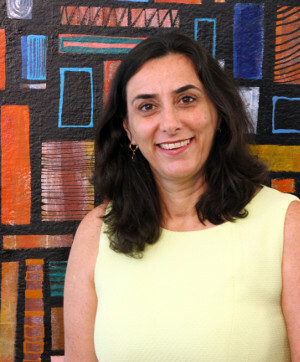The United Nations (UN) established 17 Sustainable Development Goals (SDGs) to be achieved by 2030, one of the main points being the goal #4: "ensure inclusive, equitable (equality) and quality education for all". The adoption of a school curriculum based on Education as a transformative tool is something new and has the municipal education system of São Paulo as the setting for this experience. In partnership with UNESCO in Brazil, the model was presented this Monday, July 23, at the Latin America High Level Regional Technical Meeting and Caribbean, preparation for the 2nd Regional Meeting of Ministers of Education of Latin America and the Caribbean, an event that will take place in Bolivia, on the next 25th and 26th.
Read too: Malala - the importance of the Pakistani girl in the struggle for women's education
The international event will feature 33 countries and their proposals so that the UN's objective in relation to Education is put into practice. “This exchange of experiences with other realities is very important so that the proposals for education linked to citizen training and sustainable development reach as many students as possible”, says Rebeca Otero, Education coordinator at UNESCO at Brazil.
What is the curriculum?
The curriculum prepared by the Municipal Department of Education of São Paulo, in partnership with UNESCO, was launched in December 2017 and lists the school subjects studied from the 1st to the 9th grade of elementary education in public schools with actions aimed at training children and adolescents as a citizen.
In its initial phase, the curriculum is aimed at training children and adolescents from the two phases of elementary school. However, UNESCO informed that it is in the development stage of a grid for early childhood and youth and adult education (EJA).
From the point of view of content, the proposal is that the disciplines are interconnected in student learning, that all subjects have importance and real application in the student's routine. The social perspective is that the school curriculum develops students in all its dimensions (intellectual, physical, social, emotional, cultural), taking into account the aspects of the goals of the SDGs (peace, sustainable consumption, preservation of nature and others).
What is the importance of Sustainable Development in Education?
According to Rebeca, the importance of a curriculum based on Sustainable Development goes beyond the classroom. According to the objectives defined by the UN, students are prepared to deal with issues from different spheres of society, always based on their reality. The benefit is for the wider community, not just the student and their school.
"The UN proposal is that children and adolescents can be global citizens, that is, that their knowledge contribute to their lives, the community and the planet. They receive a transforming education", Rebeca Otero - Unesco in Brazil

of UNESCO in Brazil
In the case of Brazil, the implementation of the Sustainable Development Goals in education is a way to bring the which is seen at school with the reality that the student already knows, giving greater meaning to what is taught by the teachers. This expands the Common National Curriculum Base (BNCC), a guideline that establishes the basic contents of Brazilian education.
Sustainable Development is possible from an approach that brings issues such as:
- Encouraging actions that promote peace;
- Preservation of the environment;
- Awareness of their role in society;
- Know your rights as a citizen;
- Empathize with people.
Unesco's proposal in Brazil is to list everything mentioned above with the subjects studied. The student can understand in practice (and apply the knowledge), which contributes to learning the content.

click to enlarge
Challenges
The way teaching is applied in Brazil still makes it difficult to implement actions based on the UN Objectives.
"Even today, Brazilian education is very much focused on the act of transferring content to the student, without thinking about the transformation that education must make. The model that still persists is the transmission of information and content", Rebeca Otero, UNESCO in Brazil
The meeting with the ministerial representatives also helps in getting to know the perspective of what citizen education is. According to the coordinator of Education at Unesco in Brazil, the objective is for the student to take the acquired knowledge to life, it is really “learning” and not just “decorating”. It means being sensitive to what happens in the society in which you are inserted and knowing that it is possible to make a difference through education.
Source: Brazil School - https://brasilescola.uol.com.br/noticias/unesco-secretaria-educacao-sp-elaboram-curriculo-desenvolvimento-sustentavel/3123792.html
